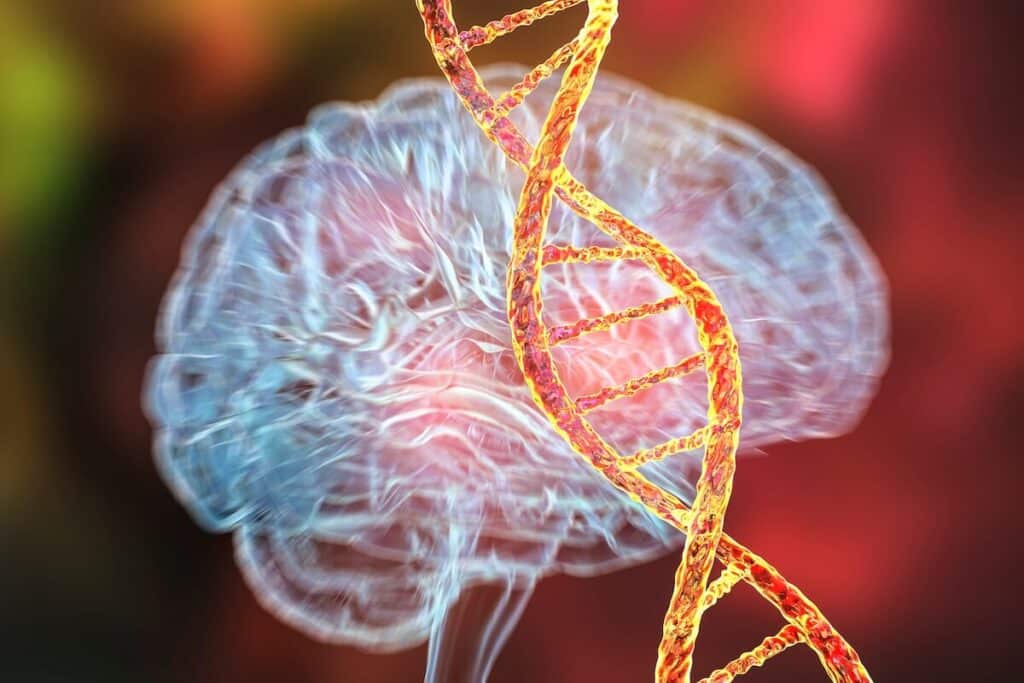Dementia is a deeply personal and often challenging condition that affects millions of families worldwide. It’s not a single disease but rather an umbrella term used to describe a range of symptoms–such as memory loss, confusion, and communication difficulties–that interfere with an individual’s ability to lead a fulfilling daily life.
At Élan Westpointe at New Braunfels, we understand that many individuals who have parents living with dementia find themselves asking critical questions about its causes, particularly if genetics plays a substantial role. Offering memory care in New Braunfels, TX, our team clarifies the connection between genetics and dementia, empowering families to make important care decisions.
What Role Does Genetics Play in Dementia?

The relationship between genetics and dementia is complex. While most cases of dementia are not strictly “genetic,” certain variations in genes can increase an individual’s susceptibility to the condition. One of the most studied genes in this field is the apolipoprotein E (ApoE) gene, which comes in several forms or variants.
The ApoE ε4 variant is associated with a higher risk of Alzheimer’s disease, the most common type of dementia. It’s important to note that having this genetic variant does not guarantee the development of dementia; it merely increases an individual’s risk. Conversely, there are other variations in the ApoE gene that may offer some level of protection against cognitive decline. For older adults receiving care or participating in individualized programs designed to support cognitive health, this genetic knowledge can play a significant role in tailoring effective approaches for maintaining brain health.
Can You Inherit Dementia?
One of the most common questions families raise is whether dementia is inherited. The simple answer is that it depends. Unlike diseases with a straightforward genetic inheritance pattern, dementia involves a more nuanced genetic relationship.
Familial dementia—cases where multiple family members have the condition—can suggest a hereditary factor, but this doesn’t always mean the disease will appear in successive generations. Genetic predisposition indicates an increased risk, but lifestyle factors greatly influence whether someone will develop dementia.
For example, early interventions such as intellectually stimulating programs, physical wellness initiatives, and healthy social interactions can make a significant difference even when genetics are involved. Tailored memory programs at our memory care community in New Braunfels, TX, are designed to incorporate both genetic awareness and lifestyle modifications to provide the best support for individuals.
Can Dementia Be Passed on to Future Generations?

Family members often wonder if they might pass dementia on to their children or grandchildren. The answer is both reassuring and complex. Dementia is not typically passed down in a direct genetic manner except in rare cases involving specific gene mutations, such as those linked to familial Alzheimer’s disease. Even when someone carries a genetic variant associated with dementia, it’s only one part of the larger picture.
Scientific research highlights that genetics contribute to an individual’s overall risk, while environmental factors, such as diet, education, and opportunities for social engagement, play equally crucial roles. This emphasizes the importance of creating supportive and proactive surroundings where mental and physical wellness are prioritized.
Residents in our memory care community in New Braunfels, TX, benefit from the expertise of care teams who consider genetic predispositions while addressing all facets of well-being. By combining personalized care plans with an emphasis on a stimulating and balanced lifestyle, we provide a crucial layer of support to both residents and their families as they manage these risks.
Finding Peace of Mind with Genetics and Dementia
While the connection between genetics and dementia can feel overwhelming, it’s important to recognize that even though genes can influence risk, they are not the sole determining factor in developing dementia. Taking proactive steps—such as participating in meaningful mental engagement, maintaining physical wellness, and building social bonds—can help mitigate risks associated with genetic predispositions.
For further information, please contact our memory care team in New Braunfels, TX. At Élan Westpointe, our empathetic and scientifically supported care allows our trained team members to provide effective therapies that manage memory loss with dignity and grace. Our goal is to deliver a person-centered approach that ensures every resident’s story is heard and every desire fulfilled.




